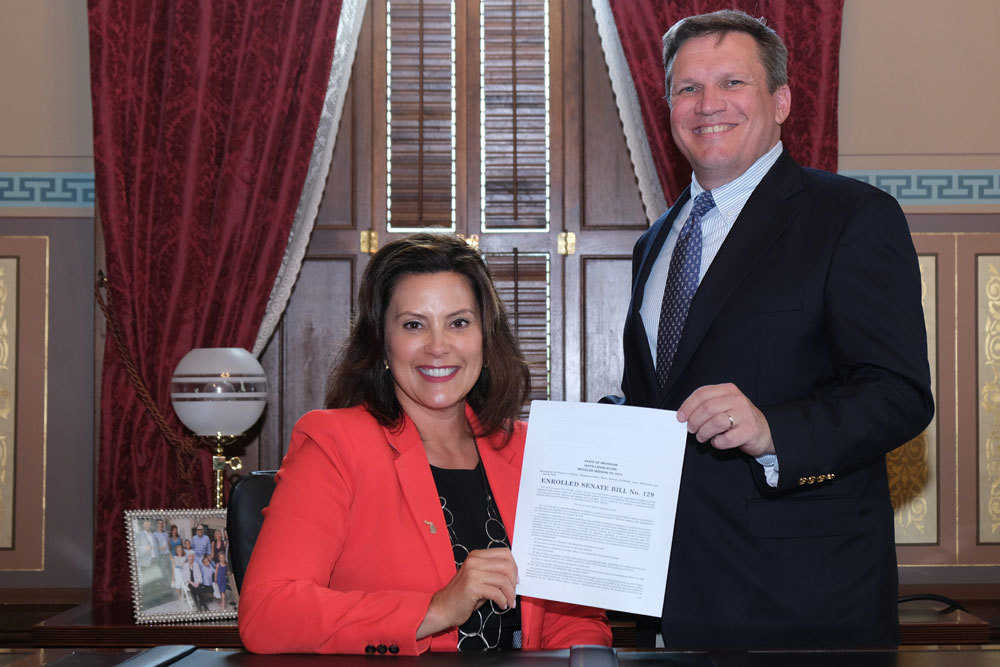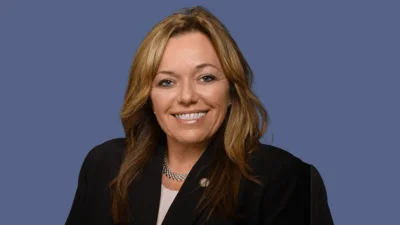State Sen. Wayne Schmidt (R-Traverse City) stands with Gov. Gretchen Whitmer after she signed Senate Bill 129 into law during a bill-signing ceremony in 2019.
State Sen. Wayne Schmidt (R-Traverse City) stands with Gov. Gretchen Whitmer after she signed Senate Bill 129 into law during a bill-signing ceremony in 2019.
In her Jan. 29 State of the State address, Gov. Gretchen Whitmer proposed eight program expansions and no government limitations.
After a 2019 battle over funding for the roads between Whitmer and the state Legislature, it seems the roads are a priority for Whitmer in 2020. She called for a bond program to work on “the worst of” the state’s highly-traveled state roads, but admits that other solutions are necessary, says the Mackinac Center for Public Policy.
“Gov. Whitmer claims that taking out bonds will save money over time, but that isn’t the case. Debt costs interest,” said Michael LaFaive, senior director of fiscal policy at the Mackinac Center, said in a release. “The money we pay on interest each year could be going towards today’s road repairs, but instead we’re still trying to pay off $1.1 billion in transportation debts from over a decade ago.”
She also emphasized support for the Affordable Care Act, although she admitted that residents do have a lack of coverage and there is still a lack of affordable plans.
“Doubling down on support for a failed scheme like the ACA by insisting that Michigan enshrine it into our own state laws demonstrates a lack of vision and commitment to solving very real and critical challenges,” said Lindsay Killen, vice president for strategic outreach and communications for the policy center, in a release. “Instead, it's time that we solved these issues with solutions that get government out of the way, preserve a secure safety net for the most vulnerable, encourage innovation, drive down costs, increase access and quality and permit flexibility for Michigan patients.”
Whitmer also proposed these expansions:
- State road bonds for road improvements
- Expansion of overtime pay for tens of thousands of state workers
- Universal pre-K for districts with low test scores or high poverty.
- Educator training in literacy to assist struggling readers
- Starting the “Governor’s FAFSA Challenge” to encourage high school students to fill out the financial aid form
- Putting the rules of the Affordable Care Act into Michigan law
- Creation of a task force focusing on prescription drug transparency and lowering costs
- Extending health coverage for low-income women with infants



 Alerts Sign-up
Alerts Sign-up